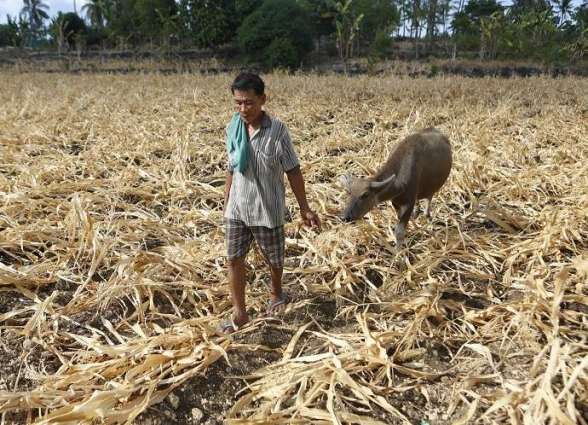Acute food insecurity caused by a severe drought and massive floods looms over 10 million Afghans, who now require urgent humanitarian assistance, the Afghan Red Crescent Society and the International Federation of Red Cross and Red Crescent Societies (IFRC) said on Thursday
MOSCOW (Pakistan Point News / Sputnik - 28th March, 2019) Acute food insecurity caused by a severe drought and massive floods looms over 10 million Afghans, who now require urgent humanitarian assistance, the Afghan Red Crescent Society and the International Federation of Red Cross and Red Crescent Societies (IFRC) said on Thursday.
"Ten million people in Afghanistan - more than a quarter of its population - face severe acute food insecurity and need urgent help after floods and drought," the organizations said in a statement, published on the official website of the IFRC.
The humanitarian organizations noted that climate change factored in this situation because it had contributed to the increase in the number of droughts and floods.
"The floods are the latest disaster to bitterly test the resilience of people already stretched to breaking point by drought. It's extremely worrying because more floods are expected," Afghan Red Crescent Secretary General Nilab Mobarez said as quoted in the statement.
Food insecurity has been further aggravated by fresh water shortages and poor sanitary conditions in many parts of the country, the statement added.
"The floods should be the wake-up call that triggers a massive investment to help people who at the moment are out of sight in an under-estimated, silent crisis with limited access by humanitarian agencies or media," IFRC Head of Country for Afghanistan Ariel Kestens said.
Over the past few years, the majority of the country's provinces experienced a severe drought that had a huge impact on harvests and forced hundreds of thousands of people to leave their homes, according to the Red Cross. Earlier in March, the UN Food and Agriculture Organization said that wheat production in Afghanistan in 2018 had decreased by 25 percent compared to the five-year average.
In addition, nine out of 34 Afghan provinces were hit in March by heavy floods that killed an estimated 63 people and displaced over 280,000 others, according to the IFRC.




